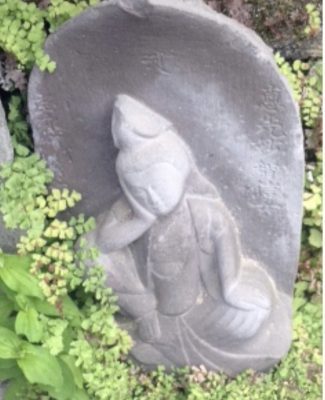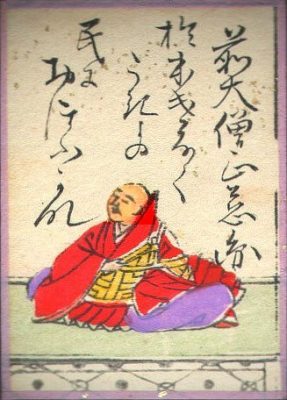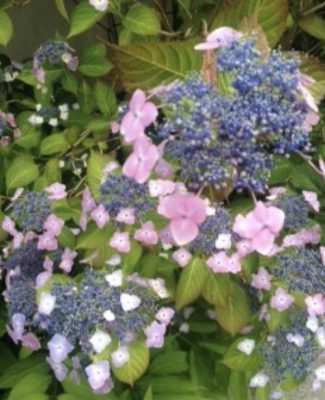Tendai Buddhism and the Monk Jien (1155-1225): Timeless poetry
Lee Jay Walker
Modern Tokyo Times

The Buddhist monk Jien was born in 1155 and he passed away from this world in 1225. Yet, despite the passages of time, his historical writings and poems leave a lasting legacy. Therefore, Jien provides a glimpse into the world he belonged to, while also trying to provide a historical Buddhist tint.
Jien was a Buddhist holy man who belonged to the Tendai sect of Buddhism. This classical school of Buddhism is instrumental in Japan because of internal mechanisms and the legacy of important non-Tendai Japanese Buddhist holy leaders. For example, the holy Buddhist priests of Dogen, Honen, Nichiren, and Shinran became famous outside of Tendai Buddhism. Yet, initially, all these famous Buddhist preachers were trained as Tendai Buddhist monks.
In a poem by Jien, he writes:
Unfit, yet
The common folk of this cruel world
Would I cover,
Standing in this timber-grove
With sleeves stained black.

The beauty of Tendai Buddhism is that it naturally absorbs the rich internal traditions of Japan. Hence, the Shinto faith and traditional Japanese aesthetics outside of Buddhism were reconciled within the philosophical framework of Tendai Buddhism. This natural reality enabled the Shinto Kami spirits to become representations of universal Buddhism based on truth.
Jien belonged to the upper echelons of society because he was a member of the potent aristocratic family of the Fujiwara. His father was Fujiwara no Tadamichi. This fact meant that a world of knowledge, wisdom, and literature was open to Jien providing he had the skill to take this golden opportunity. Thankfully, it soon emerged that he was blessed with great skills in the realm of history and poetry.
He composed a great piece of historical work titled the Gukansho. This literal work was seven volumes in length, and while providing a tainted view in relation to the rich Fujiwara links based on power concentration, this work is still of great importance. Equally, Jien absorbs the principles of Buddhism in analyzing the history of Japan in relation to his rich historical work.

Jien wrote:
Though I search
Every field
Overlooking nothing,
All the flowers are but
The flower of the law
Overall, the above Buddhist orthodoxy of the unsurpassed wisdom of the Lotus Sutra being the vehicle of salvation and enlightenment guided Jien throughout his life. Just like the orthodoxy of the Fujiwara clan that focused on a straight path of power concentration. Therefore, these two binding themes in his life – and the absorbing nature of Tendai Buddism in relation to Shintoism and traditional Japanese aesthetics – can be felt in his writings.

PLEASE DONATE TO HELP MODERN TOKYO TIMES
Modern Tokyo News is part of the Modern Tokyo Times group
DONATIONS to SUPPORT MODERN TOKYO TIMES – please pay PayPal and DONATE to sawakoart@gmail.com
http://moderntokyotimes.com Modern Tokyo Times – International News and Japan News
https://www.pinterest.co.uk/moderntokyotimes/ Modern Tokyo Times is now on PINTEREST
http://sawakoart.com – Sawako Utsumi personal website and Modern Tokyo Times artist
https://moderntokyonews.com Modern Tokyo News – Tokyo News and International News
PLEASE JOIN ON TWITTER
https://twitter.com/MTT_News Modern Tokyo Times
PLEASE JOIN ON FACEBOOK